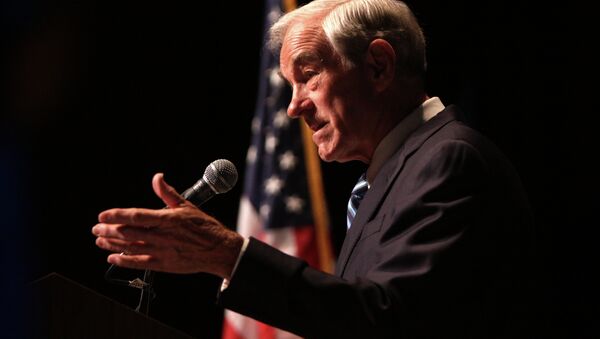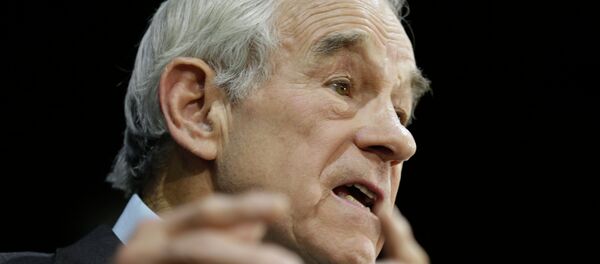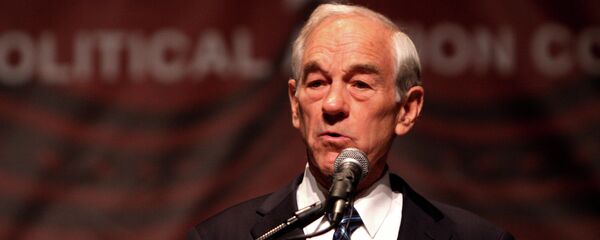"A responsible financial institution would not extend a new loan of between 17 and 40 billion dollars to a borrow already struggling to pay back an existing multi-billion dollar loan," former US presidential candidate Ron Paul writes in a piece for the Ron Paul Institute.
Yet this is exactly what the IMF did last month, on the condition that Kiev cut spending, restructure its banks, and fight corruption. But as Paul notes, this new loan does little but prop up a government which owes allegiance to the United States, the IMF’s principal financier.
"It is hardly surprising that [the IMF] would tailor its actions to advance the US government’s foreign policy goals," he writes. "The IMF also has a history of using the funds provided to it by the American taxpayer to prop up dictatorial regimes and support unsound economic policies."
Even if the Ukrainian government manages to make the required changes to its institutions, the loans still fail to promote a free market, instead enforcing its own concept of market economics on loan recipients.
"The problem with the IMF cannot be fixed by changing the conditions attached to IMF loans," Paul writes. "The fundamental problem with the IMF is that it is funded by resources taken forcibly from the private sector."
The very notion is inherently the opposite of a free market.
"The idea that the IMF is somehow better able to allocate capital than are private investors is just as flawed as every other form of central planning. The IMF must be repealed, not reformed."
Of course, the IMF isn't the United States' only way of indirectly manipulating world economies. Paul also makes note of a mysterious buyer, known only as "Belgium," who has grown to become the third-largest holder of Treasury securities.
"Belgium's large purchases always occur at opportune times for the US government, such as when a foreign country sells a large amount of Treasuries," Paul says. "While there is no evidence this buyer is working directly with the US government, the timing of these purchases does raise suspicions."
It doesn’t seem too far-fetched. Even the cursory audit of the Federal Reserve conducted during the financial crisis showed that the Fed plays an active role global markets.
It also wouldn’t be too surprising given the Fed’s history as a tool of US foreign policy, like when it financed loans to Saddam Hussein in the 1980’s.
"The lack of transparency about the Fed’s dealings with overseas central banks and foreign governments is one more reason why Congress needs to pass the audit the fed bill," Paul writes.
At the behest of the US, the International Monetary Fund "distorts the market, enriches corrupt governments, and harms both the American taxpayer and the residents of the countries receiving IMF 'aid'."
Paul concludes by calling for an end to the IMF. And the Fed.





